If you're feeling lonely and cynical, hit the club ASAP
James Blake the off-kilter-dance-music king on the radical power of a semi-legal party, the sleeper charms of the color brown, his great new album & more
Welcome to Blackbird Spyplane. Our interviews with André 3000, Jerry Seinfeld, Tyler, The Creator, Nathan Fielder, Emily Bode, Matty Matheson, The Kid Mero, Daniel Arnold, 100 gecs, Salehe Bembury, Michael Stipe, John Wilson, Sandy Liang, Héctor Bellerín, Ezra Koenig, Action Bronson, Mac DeMarco, Evan Kinori, Danielle Haim, Steven Yeun, King Krule and more are here.
Every issue of Concorde is here.
— Jonah & Erin
James Blake — he’s a Spyplane-certified musical hero whose chunes we’ve been grooving on since 2010, when he dropped a string of fantastic avant-garde dance heaters out of nowhere. You know we still keep “CMYK,” Klavierwerke and The Bells Sketch in heavy rotation baby!!
James’s early sound was the result of classical training + inspiration from gospel, R&B, and singer-songwriter GOATS he reveres, like Joni Mitchell and Stevie Wonder + the wonderfully f**ked-up, bass-heavy sounds he heard at East End clubs in late-‘00s London, via underground dubstep legends like Mala and Skream.
Since then he’s collaborated with Frank Ocean, André 3000, Beyoncé, Brian Eno and Kanye, among others, and put out a bunch of cool solo s**t. Across it all, he balances a beautiful & surprising harmonic sense with a wild gift for SMACKING electronic experimentation.
His new album, Playing Robots into Heaven, just came out Friday, and after a decade-plus of pop explorations, this s**t is a dancey love letter to the club — we can confirm that it bangs.
Also?? James enjoys clothes and thinks about them deeply. So I (Jonah) was stoked to get on an encrypted SpyVideo Call with him the other day to talk about fending off loneliness with the purifying power of semi-legal parties, how profit is the enemy of fun, “gamifying” artmaking, how the color brown hits different in your 30s, what it feels like to be touched by The Hand of God when you’re DJing… and more “unbeatable topics.”
Blackbird Spyplane: What’s up James, you’re in L.A. getting ready to hit the road?
James Blake: “Yeah, rehearsing for tour. We’re doing 7 or 8 new songs, so there’s a fair amount to get going, and there’s a couple old songs we’re bringing back but in a different context — more dancey, basically. This tour will be more clubby.”
Blackbird Spyplane: I’ve loved your music going back to the early clubby days so I’m pumped to hear that. And I’m pumped about how you dug back into dance-music on the new album. Does it feel like you’re getting back in touch with a part of yourself you’d been neglecting?
James Blake: “‘Neglected’ is a good word for it. Neglecting a part of yourself that you’re not ashamed of, exactly, but a part of yourself that you worry won’t be palatable to everyone, so you keep it slightly at bay. And finally coming around to the realization that if you don’t show people that side of yourself, then you won’t feel creatively whole, or even personally whole. So you’ve gotta get it out for the lads, basically.”
Blackbird Spyplane: Gotta do it for the lads. That’s a classic thing when an underground artist gets a bigger and bigger following, like you did — it’s easy to feel an imperative to change directions, and that can go all kinds of ways, good and bad.
James Blake: “I was playing a game, really. Literally gamifying music, as in, I see songwriting as a game to beat, and dance music as a game to beat: Can I make the best dubsteppy tune? Can I make something that fits into this or that genre and do it really well? It’s a challenge to me. They’re all my influences, but it’s like, can I actually do it? Can I actually write a real song? And when I wrote ‘Say What You Will,’ for the last album, I felt like, I’m done — what’s next? And what felt fun and natural to me was what I’m doing now.”
Blackbird Spyplane: This is a time of immense loneliness. Contemporary life is as atomized as it’s ever been, so much social interaction has moved online and into cursed apps that want us to stay inside all the time, and people seem to feel as distrustful of other people as they ever have. We get a ton of reader questions on the subject of how to fight that — how to link up with likeminded people and form meaningful friendships I.R.L. Historically, clubs have been one great answer to that question: these hugely important places to youth culture, and to counterculture, and to hashing out communities. From yr POV, is the club scene as healthy today as it was when you were coming up, or has it suffered too?
James Blake: “I was speaking to someone from a dance-music publication recently and they were saying they felt so sad they missed this golden age of dance music in London that I apparently witnessed, when clubs weren’t being shut down as much, and it was more free. And I said, ‘I miss that too!’ Because before my time there were people doing raves in fields, sticking a sound system in the grass and going until they got shut down by the police, if they got shut down at all.
“When I was coming up, investors were starting to ruin Shoreditch — buying the building next door and complaining about noise. That was starting to happen. But the biggest difference I see today is the way clubs are run. It’s harder for them to make money, and if it wasn’t, then they wouldn’t have to put as much importance on people buying drinks, and they wouldn’t have to be so crazy about cracking down on drugs, because drugs mean people don’t drink. So there’s a laxness that might be gone — but that’s in the more-commercial clubs. In downtown L.A., or more Arts District, places where you can get these pop-up parties that kind of fly under the radar, those parties still exist.
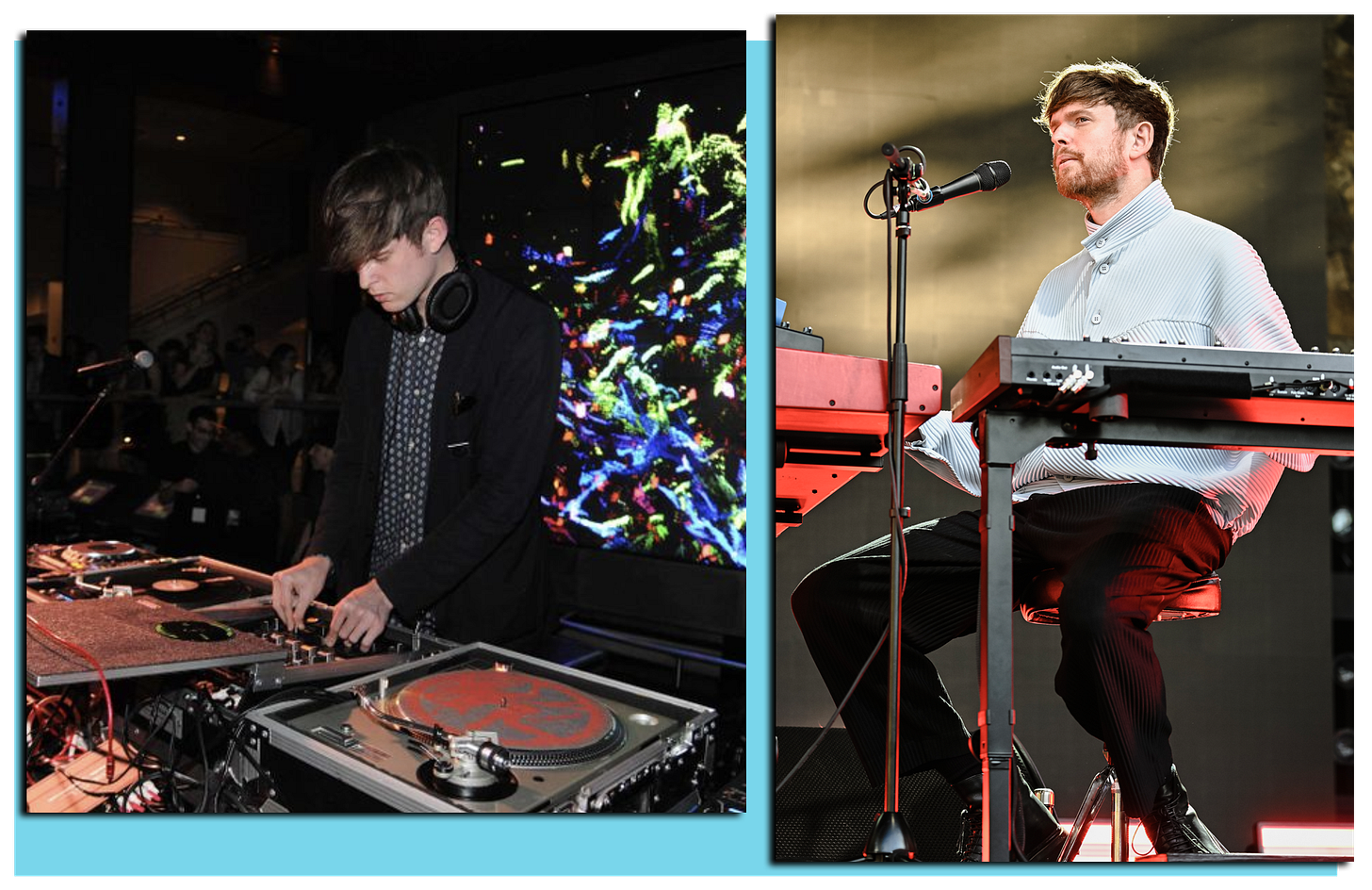
“I just think as you get older you’re less inclined to go there, so it just seems like it doesn’t exist. I’m 34 now, I don’t want to DJ the 5 a.m. Berghain sets anymore. I do end up doing them sometimes, but it’s like, ‘F**king hell!’ I really feel my age.”
Blackbird Spyplane: Right — one scene might die out, but another will always spring up somewhere else.
James Blake: “Always. Because people wanna be free, and on a core human level we understand the ways that our society stops us from feeling that way, or being that way. When you’re young, you’ve got more energy to fight that, and part of the fight is organizing things like this. It keeps our culture from being cynical. It’s a fundamental part of growing up, but also just staying spiritually free. So I’d tell people, just try and find a party where you’re not buying tickets on Ticketmaster or Resident Advisor a month in advance — a party where they maybe don’t announce the address until 9 p.m. the same night.”
Blackbird Spyplane: I wanna ask you about clothes. I remember talking with you around the time Assume Form came out, and you were telling me about grappling with a lifelong discomfort with your body that you’d just overcome. Like, an acute and sometimes unpleasant awareness of the physical fact of yourself. You clearly get a kick out of clothes and — among other things — clothes are like the least invasive, most prevalent form of body modification. I was wondering if you connect the two?
James Blake: “Yeah, I mean, then I found Ozempic and now I feel totally fine! No, I think at the time we were talking about gender, actually, and something to do with how clothes can make you feel trapped? I remember going through something where, when I’d go on stage, in order for me to feel comfortable on stage expressing quite emotional stuff, in front of a mic, I wanted to wear clothing that was more flowing and less tight. Less figure-hugging and less traditionally masculine. Because it made me feel free in a way, and less — what’s the word? In a way it felt like being a bit less ‘assigned.’ If the clothing is more gender-fluid, it feels like I’m more disembodied from expectations of what I’ll be like: how I’ll move, how I’ll seem. I felt like that enabled me to access a bit more when it came to the spiritual side of music. Maybe that was a phase, but I do still sometimes feel that way. And I still do love wearing something a bit looser and flowing.”
Blackbird Spyplane: I know Dior made pieces for you to wear on tour, you’re rocking a Prada vest as we speak, and I’ve seen you flicked up on red carpets in matching Yohji sets and Balenciaga tracksuits, on your “haute chav” flow… What draws you to a designer?
James Blake: “I love clothes where you can see the craftsmanship and the love and time someone put into it. It’s not that different from music. When I made my first bit of money, my favorite s**t was just finding nice fabrics. It wasn’t initially so much to do with the designs. Then I got more into the design side. Recently I’ve found a lot of joy in Italian suitmaking — I’ve been wearing a fair amount of Zegna. Zegna is ridiculously expensive, though, so I tend not to buy it — I just hope they send me it. Not everything fits me great, because I’m 6’6”, so I’ve got to find it where I can.
“I’ve been getting into the color brown recently, too. Brown is a color I think you only discover when you hit 30. I don’t know why that is, but it suddenly hits differently.”
Blackbird Spyplane: Brown rips for sure. And if you want some Mach 3+ Spyplane Forecasting, next up in that slot is gonna be dark, earthy purples.
Finally, I asked you to share a cherished object, and you chose an old Digital Mystikz t-shirt. I love this, because it gives me a reason to link to the incredible “Changes” by Mala, along with some other DMZ tracks. What’s the story with this tee?
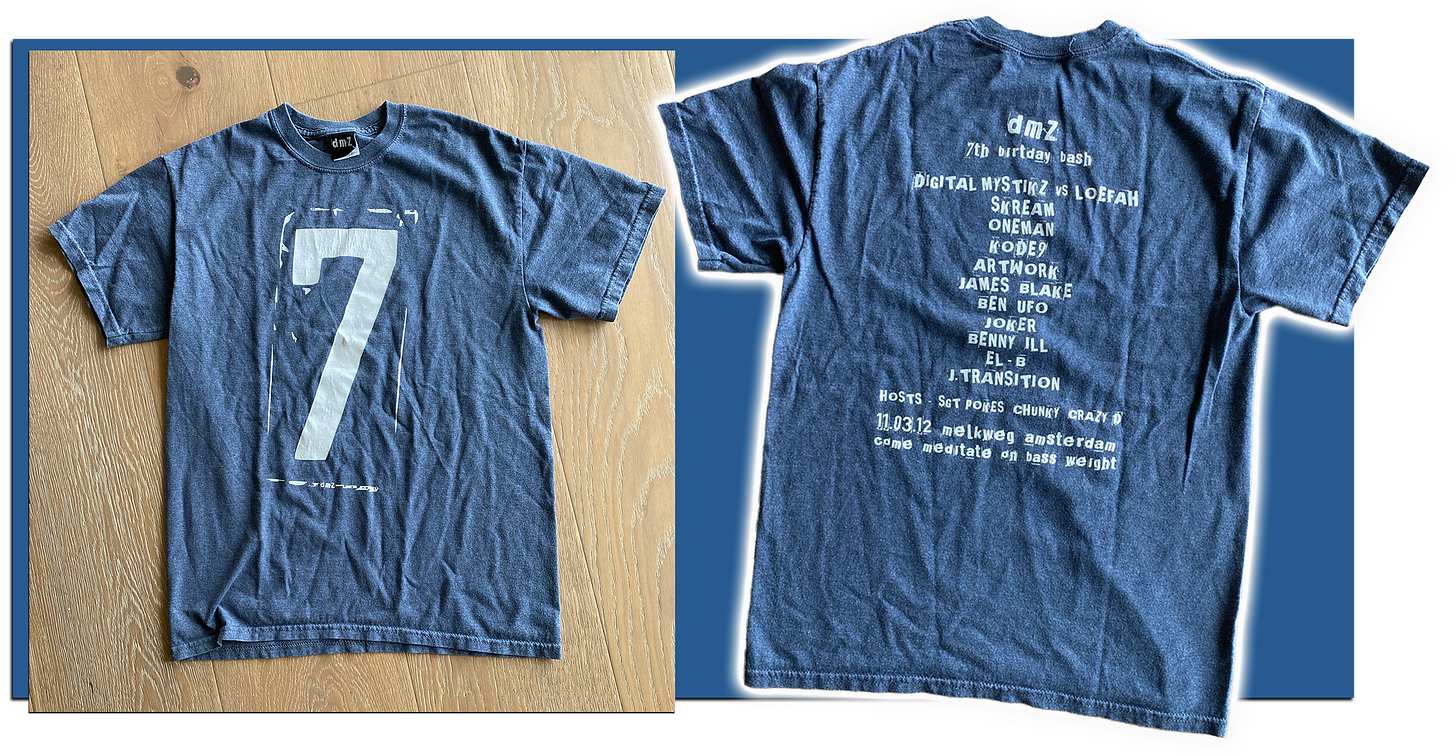
James Blake: “I’m someone who doesn’t keep anything. I don’t keep memorabilia, I don’t keep tickets stubs, I don’t keep Glastonbury wristbands, I don’t keep old t-shirts. This is the one t-shirt I’ve ever kept. It’s from the DMZ seventh birthday party, at Brixton Mass in 2012 — one of my favorite-ever DJ sets.
“I was doing back-to-back with Kode9, and stood behind me were Mala and Coki and Loefah. I hadn’t done that many vinyl sets, it’s in this huge church, and they put me on at peak time. So I’m playing my remix of ‘A Milli’ by Lil Wayne, and I want to mix in ‘Earth A Run Red,’ the Coki tune.
Blackbird Spyplane: O h*ll yeah that track is hard.
James Blake: “There’s a 16-bar breakdown in ‘A Milli,’ and a 16-bar intro in ‘Earth a Run Red,’ so I figure, if I can play the intro at the exact same time as the breakdown, they’ll double drop — a classic dubstep mixing thing, where two drops happen simultaneously. I’m like, ‘If I pull this off at Brixton Mass it’ll be the best night of my life.’
“And I do it, I pull it off. Everything’s jumping, the people behind me are going off — and then Mala or Coki wheels the tune up! They spin it back for a pull-up. So now I have to stop the other track as well, and figure out what to do, because I was planning to let them both play for a while. So I put the needles to the tops of the vinyl and line them up. They’re the same BPM, so I think, ‘If I can play them at the exact same time, from the beginning, they’ll double drop again.’ But I have to get it completely perfect, and on vinyl that’s not easy.
“I press play, then let them go at the same time — and it double drops again, and the whole place goes up!”
Blackbird Spyplane: Legendary. True ‘touched by the hand of G-d’ s**t.
James Blake: “It felt divine. Pure elation. I will never forget that moment. And this t-shirt sums up that experience. You know those nightmares where everything goes wrong? This was like a dream where everything goes right.”
James Blake is on IG here and his site, with tour dates, is here. Playing Robots Into Heaven is out now, on Apple Music here and Spotify here.


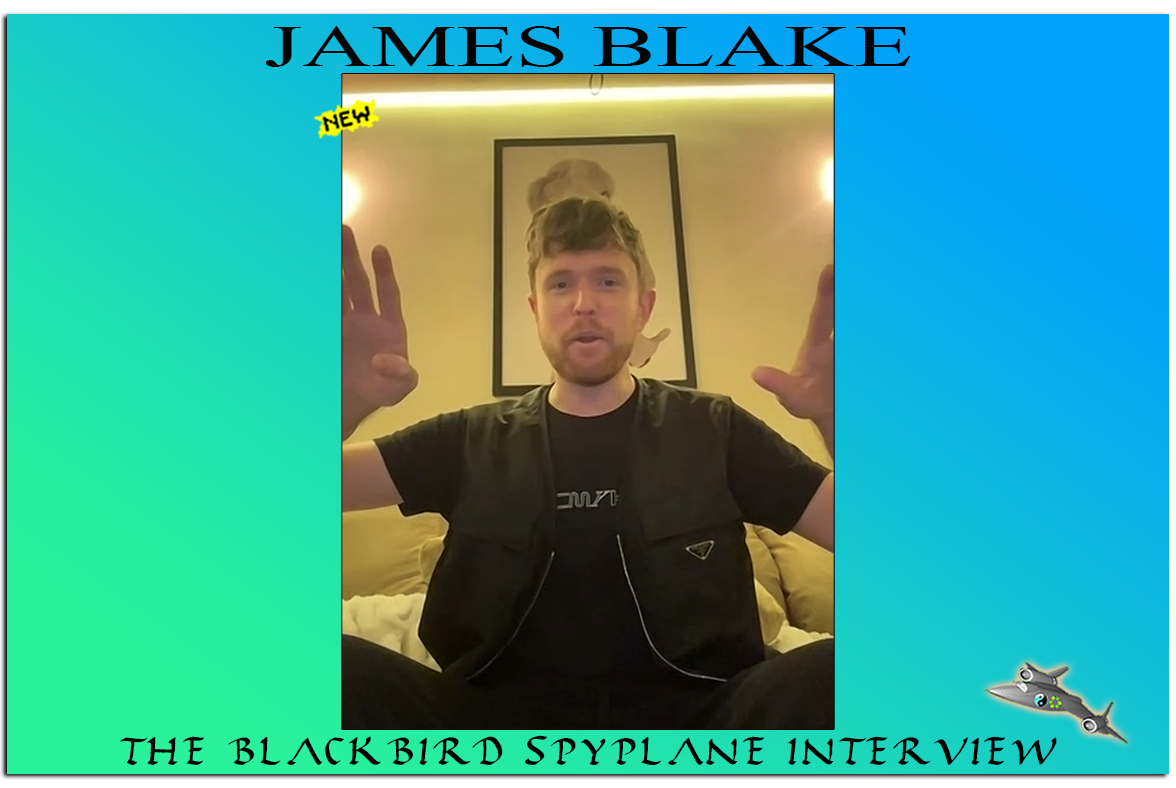
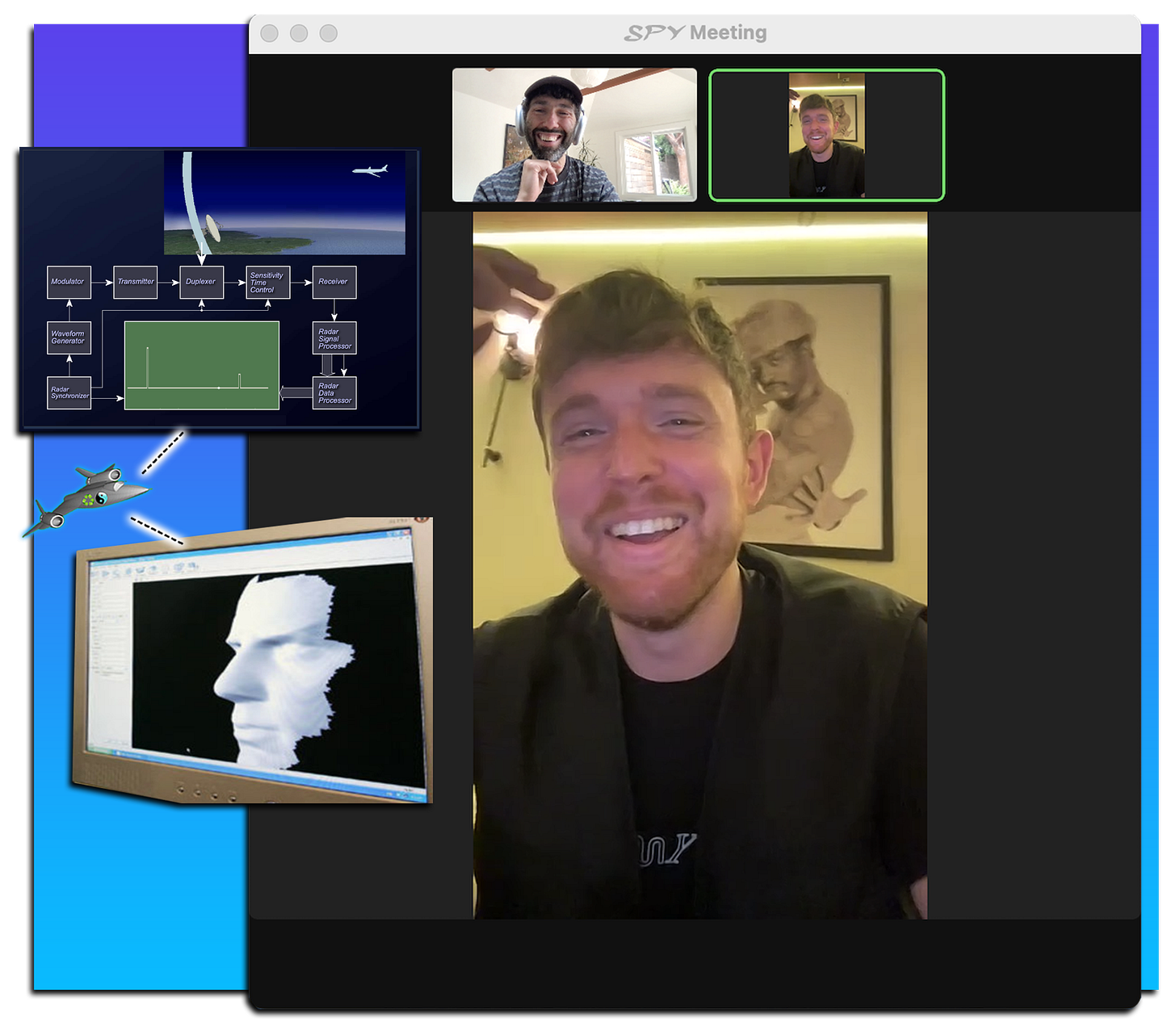

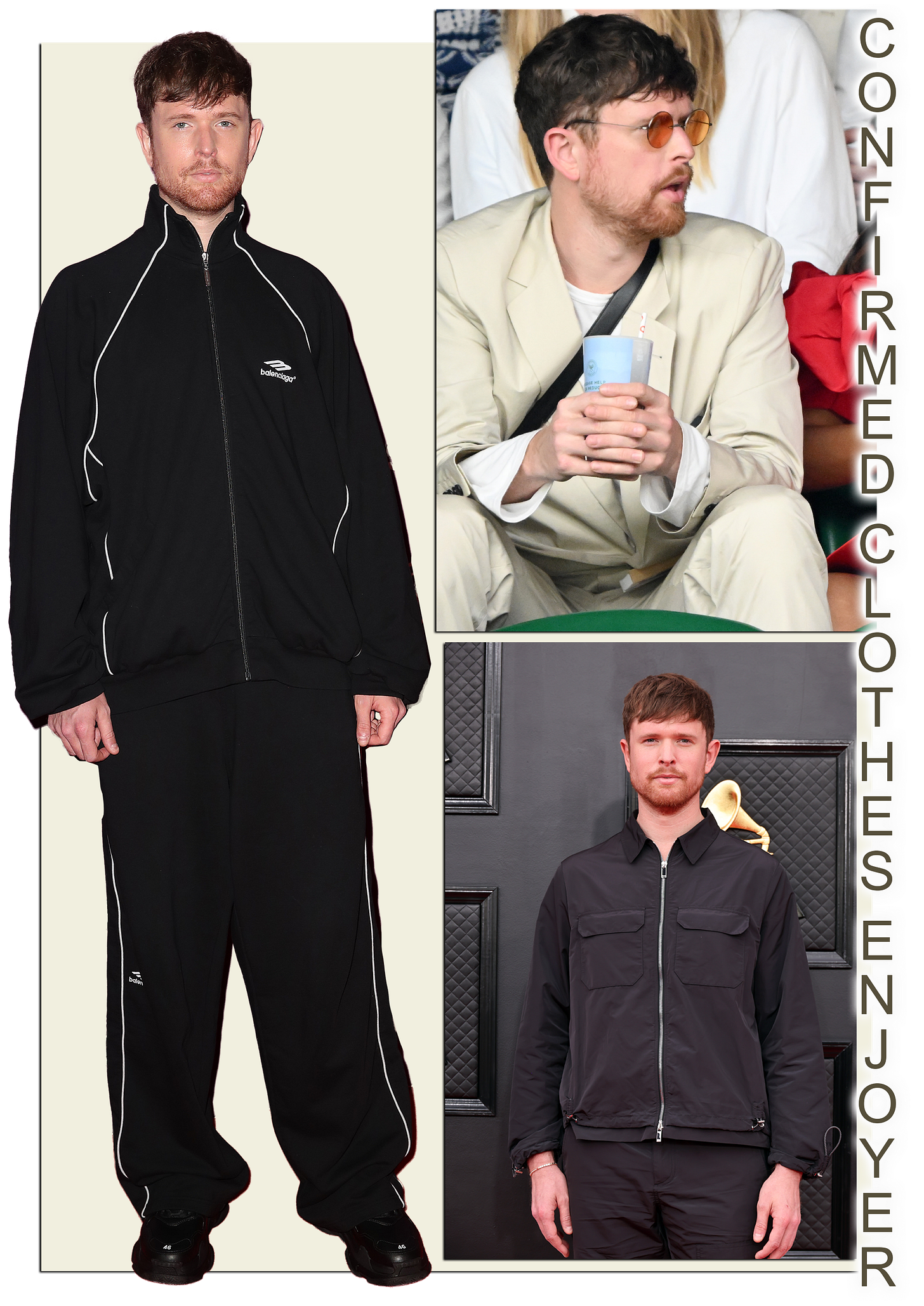
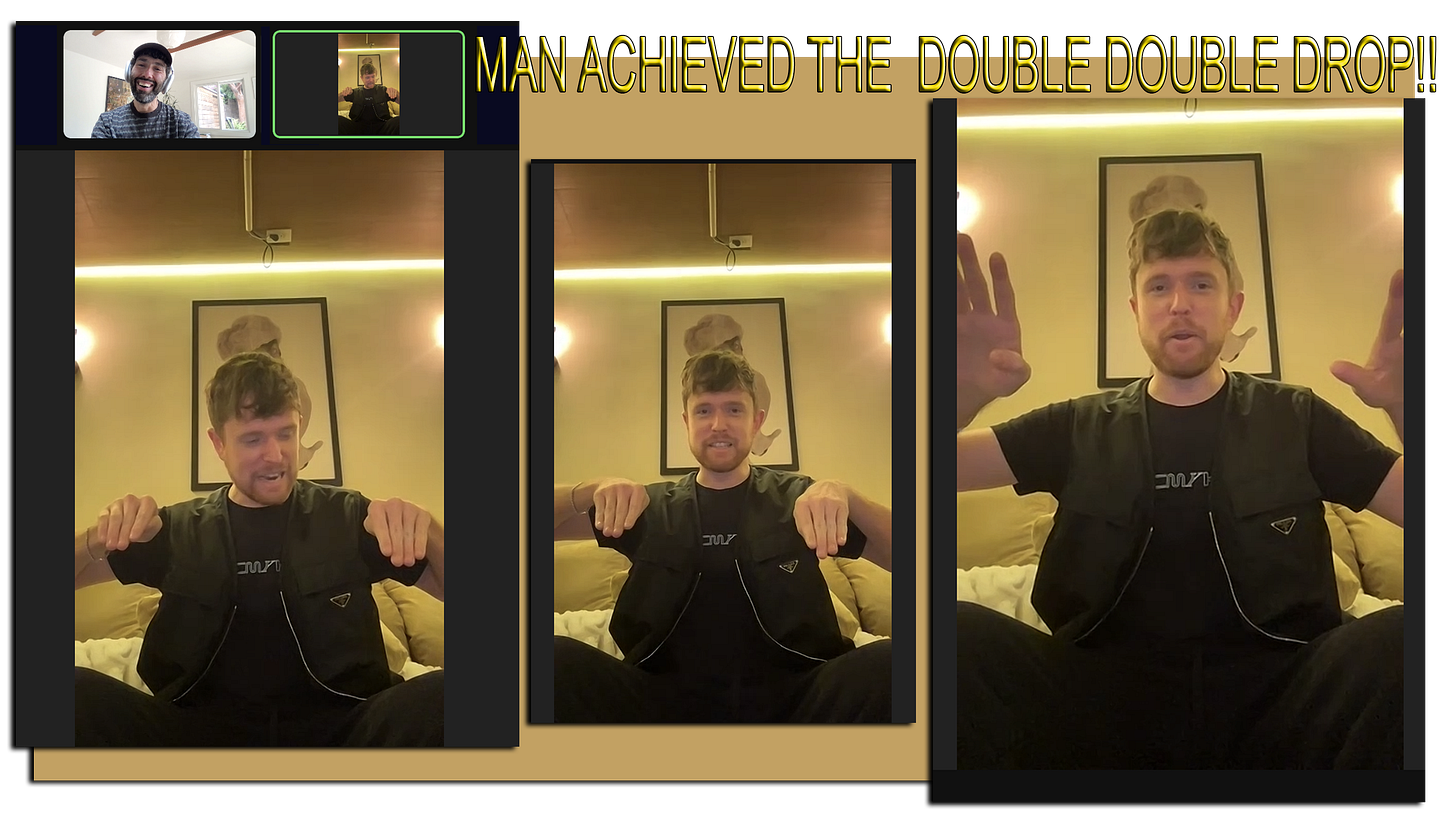
Dark earthy purples! Dark earthy purples!
What a legendary linkup. This is exactly why I subscribe. Thank you!